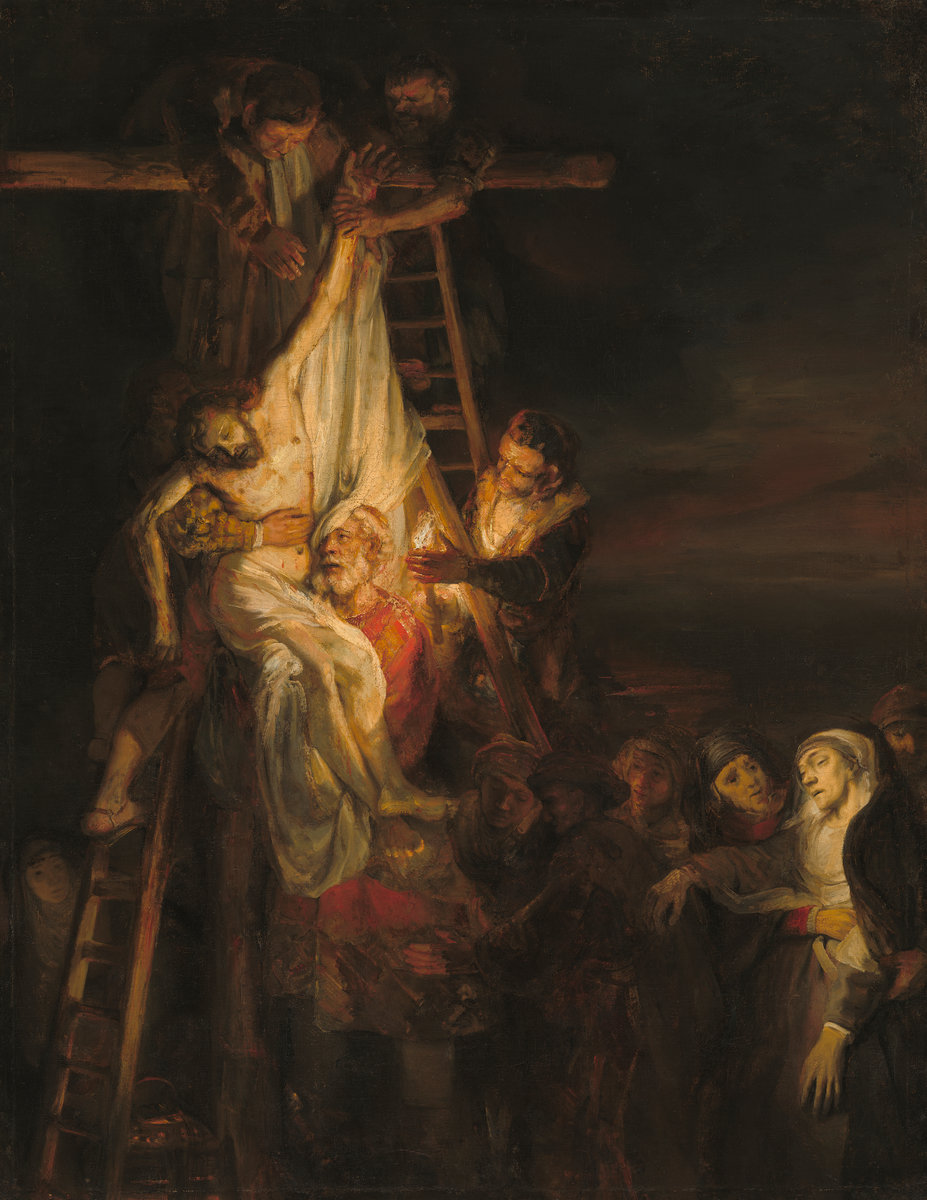

What did they see? We have heard the story of the Twelve men who set aside their livelihoods, who were invited to give what they had to the poor and follow Him. Their task was to take up a Cross daily, and the Cross was the most hated symbol in the Jewish imagination, used only a short generation ago as an instrument of heinous terror upon the Jewish nation. Yet, they would follow this Man who issued so strange an invitation. He enjoined them to give of themselves completely, in like measure to take for themselves...nothing at all.
We shrink to imagine how we might have fared through this three-year course of study and preparation. And how they fared is the stuff of legend. For which stories, I ask you, in the history of printing and story-telling, have been more widely circulated? In the nearly five-century production of books, we know which one is the bestseller. So it is widely known that they did not fare well.
Consider the depiction of the sons of Zebedee, who engineer a private meeting with the Master. In a sense, all of the disciples are present as two attempt to claim rights and honors that all Twelve desire for themselves. Their opening sentence is outlandish:
| "Teacher, we want you to do for us whatever we ask of you." (Mk 10:35) |
| "Grant us to sit, one at your right hand and one at your left, in your glory." (Mk 10:37) |
He corrects them gently, "You do not know what you are asking." Then He asks them pointedly, and we imagine with some sorrow, "Are you able to drink the cup that I drink, or to be baptized with the baptism with which I am baptized?" And without thinking they reply instantly, "We are able."
The Markan Disciples repeatedly do not understand the Master, and the phrase describing them that gives it all away is, "they understood not that saying, and were afraid to ask him." It captures their entire entire discipleship, one long period of confusion, fear, and utter lack of groundedness. We know that their fear to ask does not lie in dread of His rebuke, for they freely mock Him with irony elsewhere in this Gospel. When the woman in the crowd touches the hem of His garment, they respond archly, "You see the crowd pressing around you, and yet you say, 'Who touched me?'" Elsewhere in Mark, we read that His mother and brothers sought to have Jesus arrested, when they heard that He was going about the country with a band of men claiming to be God's Son, for they thought He was a madman (Mark 3:21).
Peter, on whom he showered special honor, is offered faithfulness, but he chooses betrayal, even though he is warned in advance. Judas, whom he trusted with the ministry's treasury, is confronted — with all of confrontation's opportunities for confession, contrition, and forgiveness — but he chooses treachery. The apostles are bid to keep watch in the garden — not once but three times, yet they choose to sleep. And when He is arrested and taken away, they all attempt to slip back into the crowd, to disappear unnoticed, and, then, when the coast is clear, to run. By the Gospel accounts of Ss. Mark, Matthew, and Luke, Jesus is abandoned by all His disciples and is left to die on the Cross alone.
Sisters, I ask you, how is it that Christianity has survived? A convicted criminal and beggar is executed in a dusty corner of the Roman Empire 2000 years ago. He leaves behind no name, for He had no grave. He leaves no disciples, for they have all run. He leaves no body of writings, for He taught them only with the sacred instrument of divine breath. He leaves not a single record in the Roman archive, for He was beneath imperial contempt. And, at the point of death, His estate includes not even the clothes from his back. Yet, against all odds, all the ends of the earth, which have yet to be discovered, will fall down and worship Him. And generations yet to be born will declare His righteousness.
What did they see? What did they see after He was taken down from the Cross and laid in a tomb? What happened out there that might stir bumptious cowards, scared and running men who had lost their nerve, to reverse direction, take hold of themselves, and suddenly live heroically? What did they see that could possibly persuade timid men, confused boys, to become heroic? To become sober and unflinching heroes who were willing to tell their stories, stories that were filled with shameful content, and to a world that reverenced honor and valor? For nothing was more important in the Graeco-Roman world in which they were raised.
Yet, as the Acts of the Apostles record in a matter-of-fact speech, they exposed themselves to constant danger, to imprisonment, and finally to willing death. Our traditions teach that every one of them would be martyred. Only St. John, by some traditions, is said to have died of old age.
What did they see? What happened to them? Do we dare to follow? Amen.